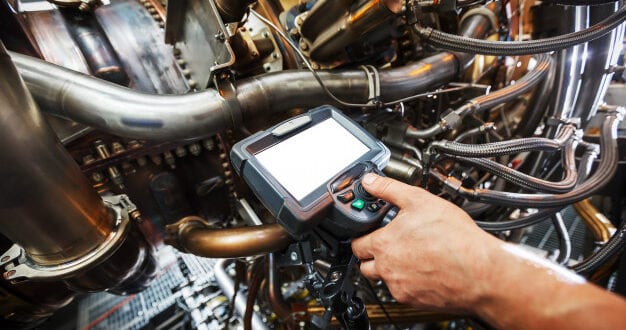Industrial endoscopes (more commonly known as borescopes) are a must-have tool for any type of inspection work. They’re used in a wide range of industries: from plumbing to auto mechanics, they have their place almost everywhere!
But, how do these versatile tools work? Do you need one? What types of industrial endoscopes are there? How to use and maintain them?
In this short guide, we’ll discuss everything you need to know about borescopes, so make sure you’ve read until the end!
Now, without any further ado, let’s get right to the bottom of it!
Three most commonly used types of borescopes
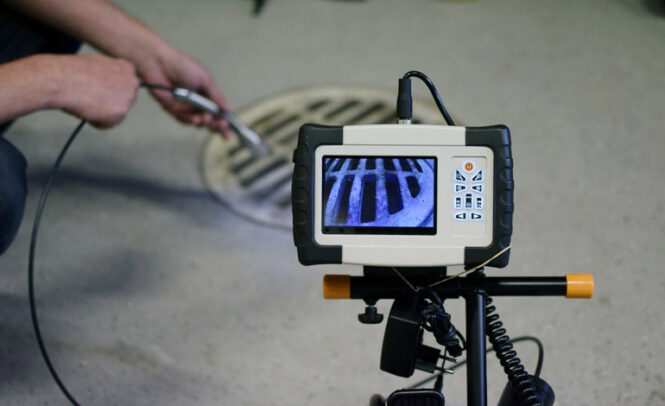
- Videoscopes– contain a CCD or CMOS camera that displays an HD image to a monitor to help you see those hard-to-reach spots inside of a construction.
- Rigid borescope- contains a lens system connected to an eyepiece that allows you to observe otherwise unreachable parts of a machine. More advanced models can be connected to a CMOS camera via an adapter.
- Fiber borescope- contains a fiber optical guide that relays an image from one lens to another. The image can be viewed through an eyepiece or you can connect the device to utilize a CMOS camera instead.
The type you choose will vary depending on your needs and your budget, but each can be extremely useful once you get the hang of it. We recommend consulting with your fellow industry colleagues to find a model that best suits your line of work.
Industrial endoscopes: features and technology
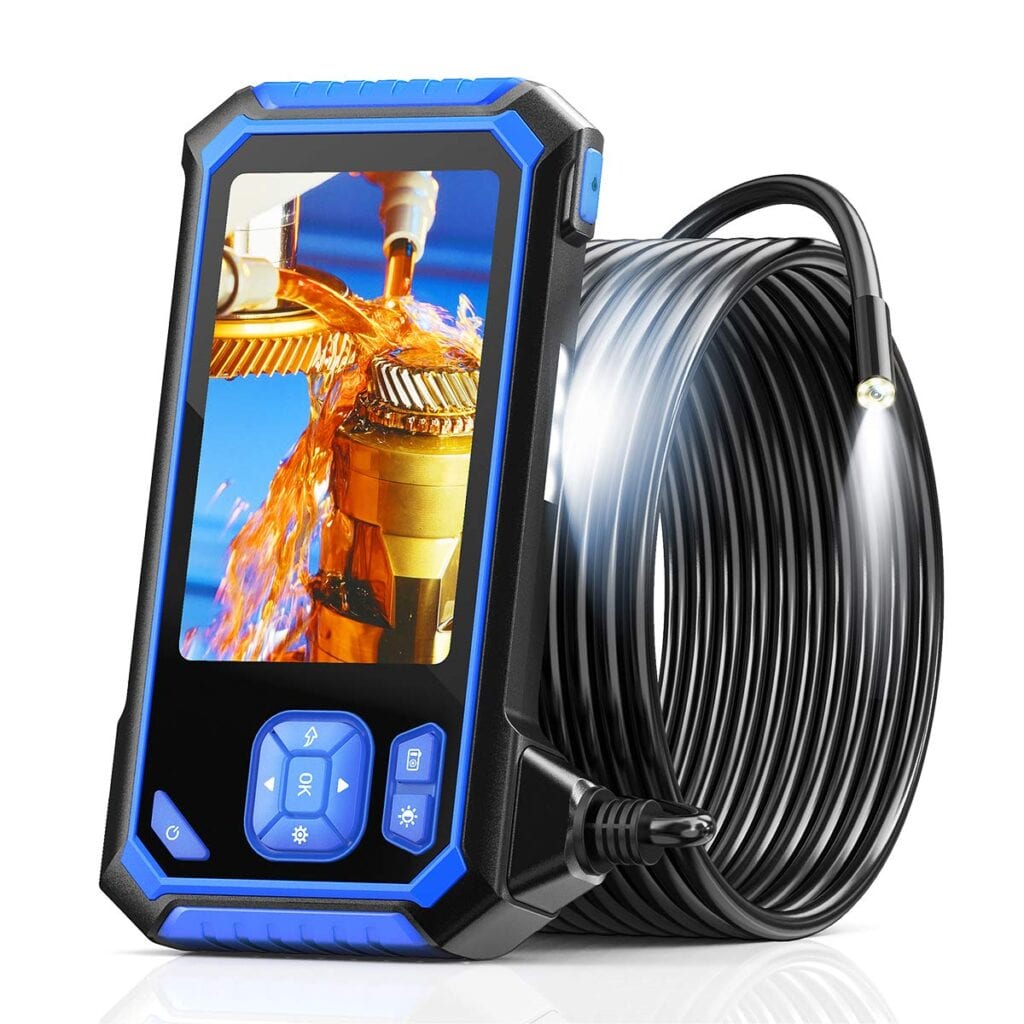
Endoscopes have evolved greatly throughout the years: you can choose from a wide range of models, all coming with different features and tech innovations. The most important thing to look for in a borescope has to be the optical lens/camera quality, especially if you’re going to use it for the delicate type of work (e.g. fixing a motor engine). Of course, the better the quality, the higher the price you’ll have to pay. Make sure to look and compare different options before you make your purchase. The model you choose should suit your needs and preferences, so base your decision on that. You won’t need the priciest industrial endoscope on the market to be able to finish routine inspection work for small jobs.
Besides just the camera/lens, make sure you explore different types of endoscopes until you’ve found something that fits your goals adequately. They come in distinct shapes, sizes, and with different functionalities, so make sure you’ve done your research.
Possible applications of the device
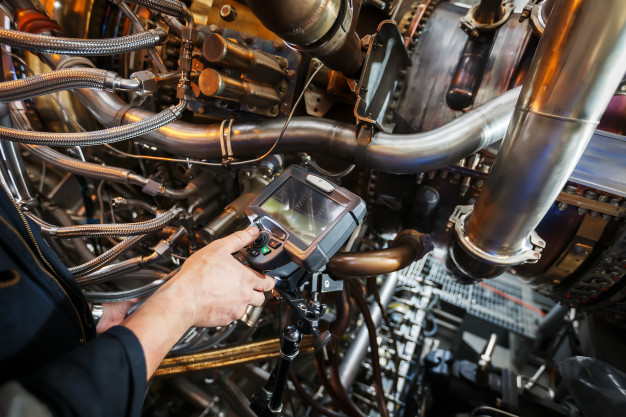
As we’ve mentioned before, endoscopes are incredibly versatile tools that can be used in a wide range of industries or even amateur work. Some of the most common ones include:
- Avio-industry- industrial endoscopes are a major part of every avio-technician’s toolkit. They can be used in turbine and engine work, avionics, airframes: you name it. The best type of borescope used in this line of work has to be a remote device utilizing joystick controls for better reach and accessibility.
- Oil and gas industry- no matter if you’re working with pumps, pipes, compressors, or separators, you’ll undoubtedly be able to make use of a quality industrial endoscope.
- Plumbing industry- plumbing systems of all kinds require the use of borescopes, especially when there’s potential internal damage you can’t see without “getting inside”.
- Auto mechanics industry- even amateur car mechanics use borescopes nowadays. These useful devices can help you see all of those “hidden” spots inside of your vehicle’s engine.
- HVAC industry– With the advancements in borescope technology, HVAC technicians don’t need to disassemble HVAC devices to recognize and identify mechanical issues anymore. Industrial endoscopes let them see inside of heaters, air conditioning, ductwork, and heat pumps.
- Manufacturing industry- Factories and foundries utilize various mechanical devices and machinery that often require careful maintenance and inspection. Borescopes can aid these industry professionals in resolving any mechanical issues they encounter inexpensively and quickly.
- Chemical processing industry- professionals in this industry find many ways to utilize borescopes and video scopes in their daily operations as well.
So, yes, as you can see, there’s a use for industrial borescopes in almost every industry: you probably need one too!
How and where to buy
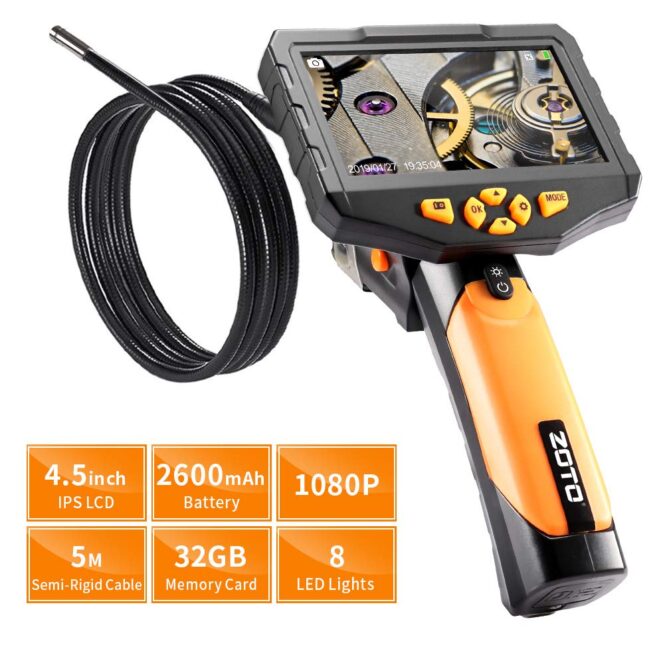
As we’ve already covered different types of borescopes and their applications, tech, and features above, you should already have a hunch on which type fits your line of work the best. After you decide on that, it’s time to start searching for a quality supplier such as Yateks, for example. If you’re ordering your device online, make sure to check the provided specs carefully, and don’t hesitate to contact the supplier to get a broader product description if need be. If you’re, on the other hand, buying your industrial endoscopes locally, remember to ask tons of questions and seek the supplier’s advice before you make your purchase.
Ensure the supplier has experience in the industry by reading some online reviews. Besides that, compare different prices until you’ve found something that fits your budget. Don’t go for the cheapest option (if you want quality), but there’s no need to overpay either! So, research, research, and more research!
Maintenance
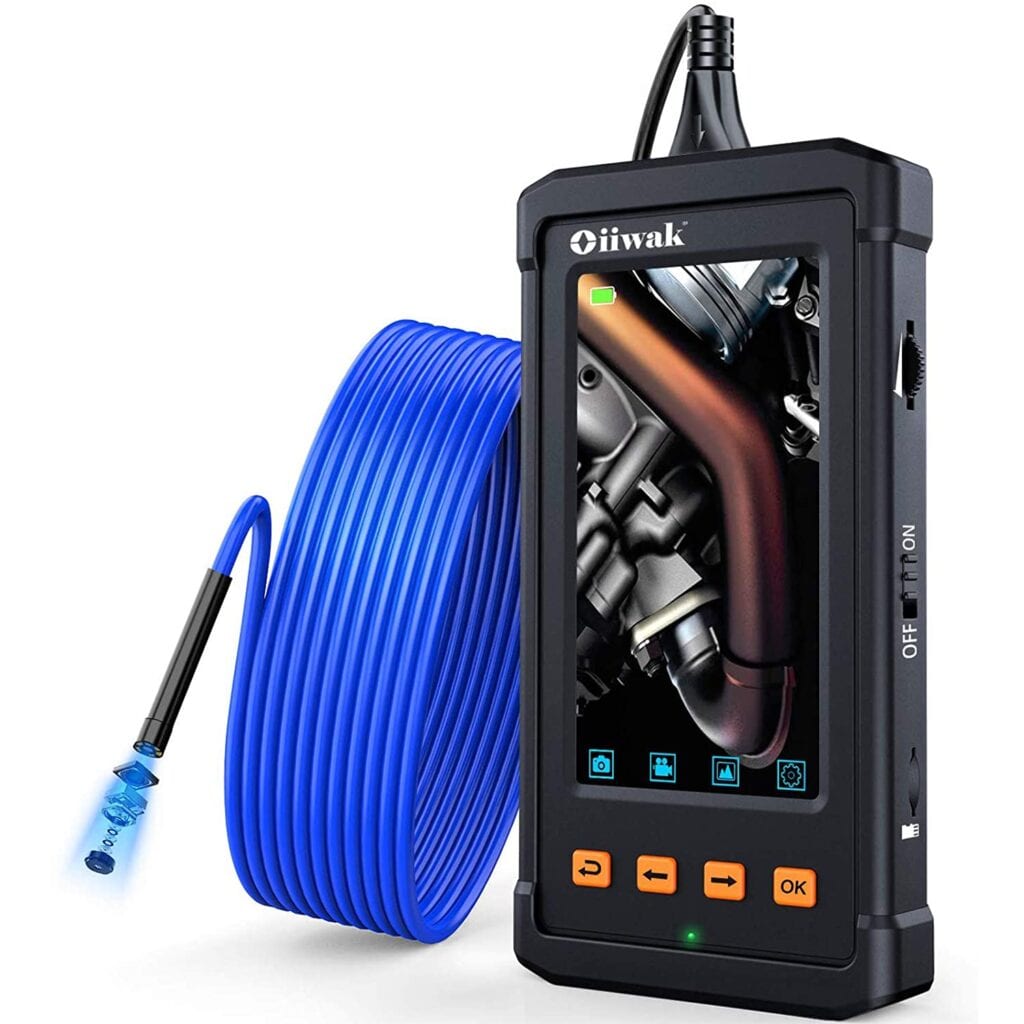
If you want your endoscope to stay functional for a long time, you’ll have to learn to use it and maintain it properly. Clean your device with some cotton swabs and rubbing alcohol after every use, and store it in a safe place once you’re done. Don’t use it in extreme heat or moisture, except if it’s made specifically for these kinds of conditions. Follow the user’s manual and if anything goes wrong, contact professional services immediately, just never try to fix it yourself.
The bottom line
Overall, industrial endoscopes are incredibly useful tools that can be utilized in many different industries for both inspection work and mechanical repair jobs. They help us see otherwise unreachable spots, be it inside of a plumbing system or a car engine.
If you’re realizing you could use one in your line of work, we suggest you do some research on different models available to you before you go shopping. As long as you choose your supplier carefully, we’re certain you’ll wish you’ve started using borescopes way sooner!
 Imagup General Magazine 2024
Imagup General Magazine 2024
